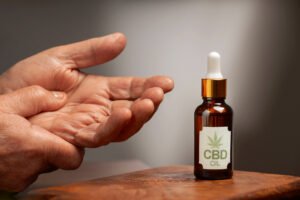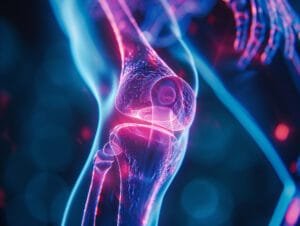Beyond Anxiety: Other Potential Mental Wellness Benefits of CBD Oil
While CBD oil has gained widespread recognition for its ability to ease feelings of stress and anxiety, its potential extends far Beyond Anxiety….
Table of contents
While CBD oil has gained widespread recognition for its ability to ease feelings of stress and anxiety, its potential extends far Beyond Anxiety. As researchers continue to explore the multifaceted interactions between cannabidiol and the brain’s chemistry, a growing body of evidence suggests CBD may support mood, sleep, trauma recovery, and overall mental wellness. In this comprehensive guide, we’ll examine the key areas where CBD oil shows promise beyond its anti-anxiety effects—and what you should know before incorporating it into your routine.
How CBD Works in the Brain
To understand the Beyond Anxiety benefits of CBD oil, it helps to grasp how cannabidiol interacts with the body’s endocannabinoid system (ECS). The ECS regulates physiological functions including:
- Mood and stress response
- Sleep–wake cycles
- Appetite and digestion
- Pain and inflammation
CBD modulates the ECS by influencing cannabinoid receptors (CB₁ and CB₂) and supporting levels of natural endocannabinoids like anandamide. This balancing effect underpins many of its reported mental wellness benefits.
1. Mood Enhancement and Depression Support
Depression affects over 264 million people worldwide, and many seek alternatives to traditional antidepressants. Emerging research indicates CBD may:
- Boost serotonin signaling: By acting on 5-HT1A receptors, CBD can help elevate mood similarly to some antidepressant medications.
- Protect neural pathways: CBD’s neuroprotective properties may help maintain healthy brain function and resilience against stress-induced damage.
While Beyond Anxiety studies in humans are still small, animal models have shown rapid antidepressant-like effects with CBD treatment.
2. Improved Sleep Quality
Good sleep is foundational to mental health. Disrupted sleep can exacerbate depression, anxiety, and cognitive issues. CBD oil may promote restorative sleep Beyond Anxiety by:
- Reducing insomnia: CBD can calm the mind and ease racing thoughts that interfere with falling asleep.
- Regulating circadian rhythms: By interacting with sleep–wake receptors, CBD may help normalize sleep patterns.
- Addressing pain or discomfort: Topical or ingestible CBD can reduce nighttime aches that interrupt rest.
Users often report falling asleep faster and waking more refreshed.
3. Post-Traumatic Stress and Trauma Recovery
For individuals with PTSD, intrusive memories and hyperarousal can disrupt daily life. Preliminary studies suggest CBD may:
- Dampen fear memory reconsolidation: CBD appears to weaken traumatic memory recall, making it less distressing over time.
- Reduce nightmares: By modulating REM sleep, CBD may decrease the frequency and intensity of trauma-related nightmares.
- Alleviate hypervigilance: CBD’s calming ECS effects can temper the overactive stress response common in PTSD.
These findings illustrate how benefits Beyond Anxiety could transform trauma therapy protocols.
4. Substance-Use Recovery Support
Recovery from addiction involves both physiological and psychological challenges. CBD oil shows promise Beyond Anxiety in:
- Reducing cravings: CBD may lessen drug-seeking behaviors by stabilizing reward pathways.
- Mitigating withdrawal symptoms: Its anti-inflammatory and neuroprotective properties can ease the physical discomfort of detox.
- Lowering relapse risk: By promoting emotional balance, CBD supports long-term abstinence efforts.
While not a standalone cure, CBD offers a complementary tool in comprehensive recovery programs.
5. Cognitive Clarity and Focus
In an age of constant distraction, many seek natural ways to sharpen concentration. CBD’s mental benefits Beyond Anxiety include:
- Reducing “brain fog”: By calming inflammatory processes, CBD can clear mental haze and support sharper thinking.
- Supporting neurogenesis: Some research indicates CBD promotes the growth of new neurons in memory-related brain regions.
- Regulating stress hormones: Lower cortisol levels help prevent stress-induced lapses in attention and memory.
Students, professionals, and creatives alike may find CBD oil a beneficial ally for cognitive wellness.
Limitations and Considerations
While the benefits Beyond Anxiety are promising, it’s important to approach CBD oil with realistic expectations:
- Research is in early stages: Many human clinical trials are small or preliminary.
- Individual responses vary: Genetics, metabolism, and existing health conditions affect outcomes.
- Quality matters: Always choose third-party tested, full-spectrum or broad-spectrum products.
- Possible drug interactions: CBD can influence liver enzymes and alter the effectiveness of certain medications.
Consult with a healthcare professional before adding CBD to your mental wellness regimen.
FAQs About CBD’s Mental Wellness Benefit

1. Can CBD oil treat depression on its own?
CBD shows antidepressant-like effects in animal studies, but it should complement—not replace—professional care for clinical depression.
2. How much CBD should I take for better sleep?
Start with 25 mg about an hour before bedtime and adjust in 10 mg increments based on sleep quality and duration.
3. Is CBD oil legal everywhere?
Hemp-derived CBD (<0.3% THC) is legal federally in the U.S., but state laws and international regulations vary.
4. Will CBD make me feel “high”?
No. CBD is non-psychoactive and does not produce intoxication like THC.
5. How long before I see benefits beyond anxiety?
Some users notice improvements in mood or sleep within days, but optimal effects often require consistent use over 4–6 weeks.
Conclusion
As the research landscape evolves, the benefits of CBD oil extend well Beyond Anxiety into areas such as depression support, sleep normalization, PTSD relief, addiction recovery, and cognitive enhancement. While more robust clinical trials are needed, current findings and user testimonials point to cannabidiol’s broad potential as a natural ally in comprehensive mental wellness strategies.








Nice blog here Also your site loads up fast What host are you using Can I get your affiliate link to your host I wish my web site loaded up as quickly as yours lol
I loved as much as youll receive carried out right here The sketch is attractive your authored material stylish nonetheless you command get bought an nervousness over that you wish be delivering the following unwell unquestionably come more formerly again as exactly the same nearly a lot often inside case you shield this hike